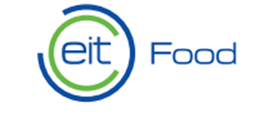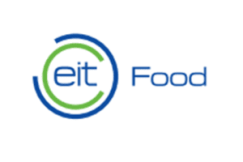Education
15 May 2025
EU skills academies
Education
15 May 2025
1. Healthy, balanced and sustainable diets for all European consumers
2. Prevention and reduction of food loss and waste
3. A climate - neutral food chain in Europe by 2050
+4 more
Login / create an account to be able to react
-
4

EIT Food Launches EU Skills Academies to Drive Workforce Transformation in the Agri-Food Sector
The EU Skills Academies are a bold response to these challenges. They will build the competencies, confidence, and connections needed to future-proof Europe's food systems - from farm to fork.
Each Academy is a dynamic skills alliance, bringing together industry, employers and employees, education experts, training providers, and policymakers.
They are not physical spaces but action-oriented, industry-driven coalitions that solve skills gaps through skills intelligence, training provision, and experimentation with upskilling and reskilling the workforce.
Editorial team
EIT Food
Topics
Albania
Armenia
Austria
Belgium
Bosnia and Herzegovina
Bulgaria
Croatia
Cyprus
Czechia
Denmark
Estonia
EU-27
Finland
France
Georgia
Germany
Greece
Hungary
Iceland
Ireland
Italy
Kosovo
Latvia
Liechtenstein
Lithuania
Luxembourg
Malta
Moldova
Montenegro
Netherlands
North Macedonia
Norway
Poland
Portugal
Romania
Serbia
Slovakia
Slovenia
Spain
Sweden
Switzerland
Türkiye
Ukraine
Academic / Research and VET Institutions
Business Support Organisation
Company with 250 or more employees
Cluster Organisations
Consumer Organisations
Cultural and Heritage Organisations
Destination Management & Marketing Organisations
EU Institutions
Financial Institutions and Investors
Industry Associations and Chambers of Commerce
International Organisations
Local Authorities
Media / Journalist Organisations
National authorities
Networks and Federations / Confederations
NGOs / Non-profits
Notified Bodies
Regional Authorities
SMEs (a company with less than 250 employees)
Social Economy Entity
Trade Unions
Other
-
CoC aspirational objectives
-
-
1. Healthy, balanced and sustainable diets for all European consumers
-
2. Prevention and reduction of food loss and waste
-
3. A climate - neutral food chain in Europe by 2050
-
4. An optimised circular and resource-efficient food chain in Europe
-
5. Sustained, inclusive and sustainable economic growth, employment and decent work for all
-
6. Sustainable value creation in the European food supply chain through partnership
-
7. Sustainable sourcing in food supply chains
-
Share
Europe urgently needs a future-ready food workforce. The Draghi, Heitor, and Letta Reports and the EU Competitiveness Compass set out the connection between a skilled workforce and innovation, competitiveness, and the green and digital transitions. Across the food system, the need is exceptionally pressing. Fragmented value chains, outdated training systems, and a growing mismatch between job requirements and worker capabilities are holding its sectors back. With the highest rate of skills misalignment in the economy, the agri-food sectors urgently need targeted, systemic solutions. Employment in the industry is projected to decline by 13% in Europe, particularly among low-skilled workers. Meanwhile, there is a strong demand for entrepreneurial thinking, technical and digital know-how, sustainability skills, and collaborative mindsets.
The EU Skills Academies address critical skills needs across the food system.
They are designed to have a significant impact:
They will train 100,000 learners per Academy, nurturing the top talent entering the food system, supporting professional learners, and enhancing vocational education and training.
Competitiveness. The sectoral approach will result in demonstrable changes in the biotechnology, primary production, and manufacturing sectors to drive competitiveness through a more robust workforce.
Commercialisation of research. The approach creates networks and skilled individuals to accelerate the commercialisation of research and innovation from knowledge institutions, leading to spinouts, startups, and marketed innovations.
Supporting the Pact for Skills in Agrifood. The Academies support the sectoral Pact for Skills by providing excellent skills intelligence, training, and education.
The Academies are built on the following interconnected pillars:
Strategic skills intelligence
Insights and forecasts help industry, employers, associations, education, and training providers to drive strategic action to close skills gaps and enhance competitiveness.
Competency and mindset building
Custom learning journeys and high-quality training designed to strengthen technical, digital, innovation, and sustainability skills, underpinned by the EIT Food Competency Framework and digital credentials.
Boosting impact
Innovation Practice Communities and policy labs address challenges and barriers to innovation and transformative change, boost tangible innovations and effective frameworks for skill development, and pilot innovative solutions to enhance the ecosystem's capacity to transition.
This course is intended for:
Industry partners and producer associations to co-design training needs
Employers to invest in their workforce
Educational institutions and training providers are to join course development and credentialing, as well as deliver training
Policy actors to help shape enabling frameworks
Foundations and funders to support long-term impact
Upon registering your interest, complete information will be provided over the duration, whether gratis or paid, and the terms of attendance (online/in person).
Link to registration form:
Comments (0)
See also
-
18
EIT Food Launches EU Skills Academies to Drive Workforce Transformation in the Agri-Food Sector
- Categories
- 2. Prevention and reduction of food loss and waste 3. A climate - neutral food chain in Europe by 2050 4. An optimised circular and resource-efficient food chain in Europe +3 more
-
4
Agrifood Leadership Education Programme (ALEP)
- Categories
- 2. Prevention and reduction of food loss and waste 3. A climate - neutral food chain in Europe by 2050 4. An optimised circular and resource-efficient food chain in Europe +3 more
-
3
Drift Food project
- Categories
- 2. Prevention and reduction of food loss and waste 3. A climate - neutral food chain in Europe by 2050 4. An optimised circular and resource-efficient food chain in Europe +3 more




